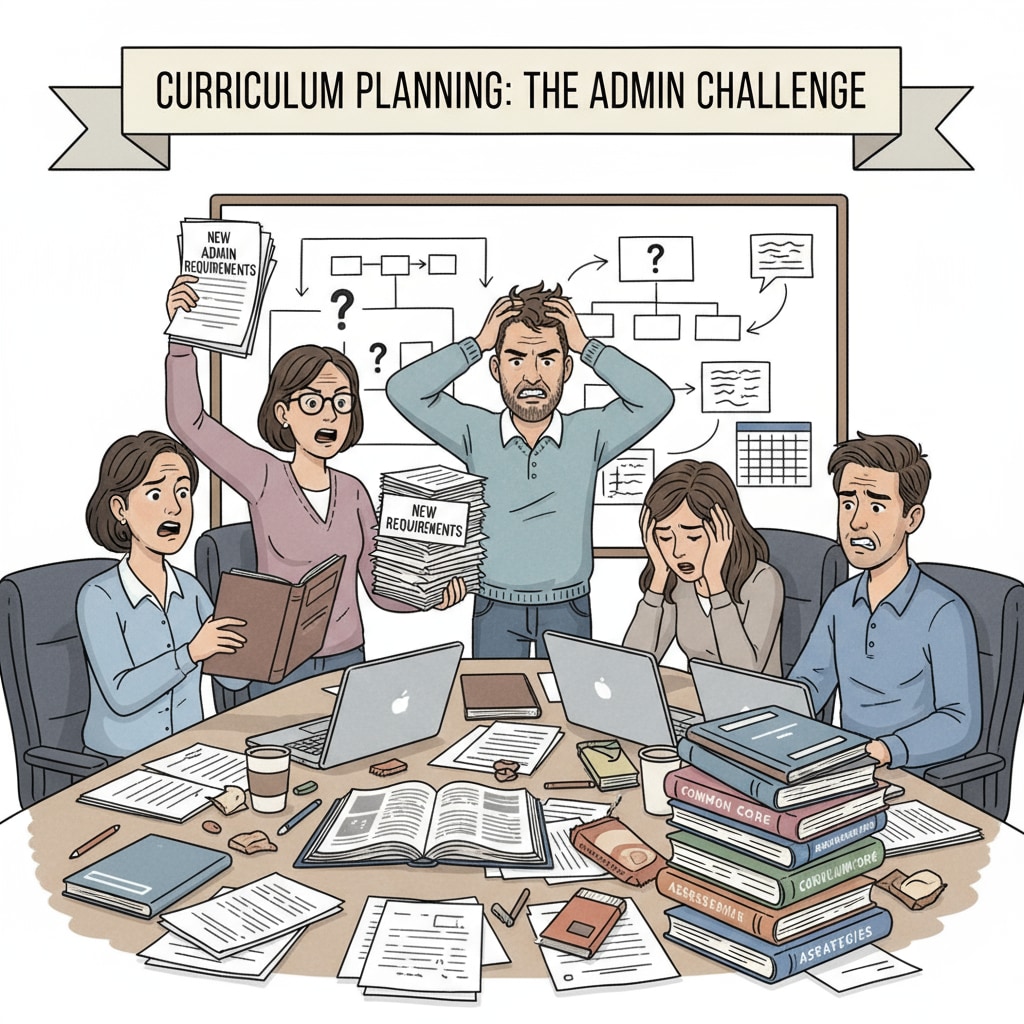In the realm of K12 education, data recording, micromanagement, curriculum planning, and administrative supervision have become hot-button issues that are reshaping the landscape of teaching. The once harmonious relationship between educators and administrative oversight is now fraught with tension. As schools increasingly rely on data-driven decision-making, teachers are finding themselves under a microscope of micromanagement, which directly impacts their ability to plan curricula freely and teach with autonomy.

The Rise of Data-Driven Micromanagement
The push for data-driven education has led to an explosion of data recording in schools. Administrators now demand detailed records of every aspect of teaching, from student performance metrics to lesson delivery times. This has translated into a form of micromanagement where teachers feel like their every move is being scrutinized. For example, they may be required to record how many minutes they spend on each topic during a lesson, leaving little room for spontaneity or creativity in the classroom. According to The National Education Association, this excessive focus on data can lead to teachers feeling overwhelmed and less effective in their teaching.
The Impact on Curriculum Planning
Curriculum planning, which was once a creative and collaborative process for teachers, has now become a highly regulated activity. Administrative supervision often dictates the content, pacing, and even the teaching methods to be used. Teachers are expected to align their lessons strictly with standardized frameworks, leaving them with limited freedom to adapt the curriculum to the unique needs of their students. As a result, the quality of education may suffer, as students may not be getting the personalized learning experiences they require. ASCD research has shown that a more flexible curriculum planning process can lead to better student outcomes.

The current situation of administrative supervision and the resulting micromanagement are taking a toll on educators. The loss of autonomy in curriculum planning and the constant pressure of data recording are not only affecting the quality of education but also the well-being of teachers. To address this issue, a balance needs to be struck between the need for accountability and the preservation of teachers’ professional judgment. By doing so, we can ensure that K12 education remains a dynamic and effective system that nurtures the growth of both students and teachers.
Readability guidance: The article uses short paragraphs to present ideas clearly. Each section focuses on a key aspect of the issue. Transition words like “for example” and “as a result” are used to connect ideas. The use of external links provides additional resources for readers to explore further.


